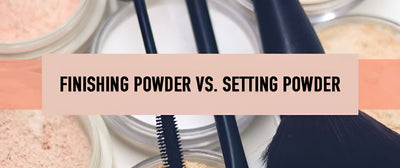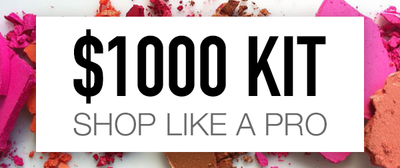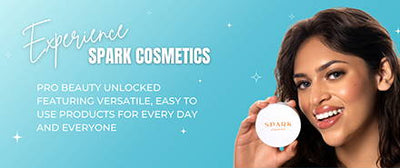
Written by: Mary Erickson, CRC Founder and Professional MUA
Mary Erickson is NOT a Certified Public Accountant (CPA). Please contact a CPA before making any tax decisions or for detailed questions regarding filing taxes. The information below is not intended as a guide for filing your taxes.
___________________________________________________
When it comes to filing taxes as a makeup artist, I hear the following statements from my freelance friends all the time:
“I’ve never been audited. I don't make enough money to be noticed.”
“I’m a small fry. The IRS doesn’t care about me.”
And, most common: “I keep all of my receipts so I’m good.”
All three of those statements are false. If you've never been audited, congratulations. You managed to get lucky. Did you know working as a freelancer or making lower income is one reason you may be audited? The IRS doesn’t exclusively audit the wealthy.
With the COVID-19 pandemic taking a toll on our economy and personal finances, the federal government has extended the tax filing deadline to July 15 without putting you at risk of interest or penalties. The typical tax deadline is April 15, so take a moment to celebrate and breathe a sigh of relief.
If you owe money to the IRS, this extension gives you until the July 15 deadline to make a payment. So even if you file today, you won't say goodbye to that money until whichever scheduled date you choose up to July 15. This extension automatically applies to all taxpayers; there is nothing special you need to do. File as you normally would.
___________________________________________________
NOTE: This extension only applies to federal income taxes. State income tax varies by state. While most states have matched the federal government's tax deadline of July 15, others have created their own guidelines. Visit your state or local government website to learn more about alternative state tax filing guidelines that may apply to you.
___________________________________________________

How To File Taxes As A Freelance Makeup Artist
Maybe you've never filed taxes as a freelance makeup artist, or maybe you have but never seem to quite understand what you're doing. Follow my list of DO's and DON'TS to protect yourself from an IRS audit and ensure you're getting the maximum return or minimum amount owed.
DON’T lie to the IRS! This is the #1 most important thing you’ll read all day.
Real cases go like this: You’re a freelance makeup artist, but you only dabble in it while living with your friend/roommate. You claim $20,000 in income for the year from various freelance jobs because that’s what appears on your 1099 forms. You claim $15,000 in expenses with gas, office supplies, phone, etc. So you will owe taxes on only $5,000 in income for the year.
Now enter the IRS. Your rent is $600 per month. Your car payment is $200 a month. Your expenses (not including food, utilities, etc.) are $800 a month.
Are you ready for this question from the IRS:
“How did you pay rent and car payments on $5,000 for the year?”

This is not the time to make up falsehoods about loans family gave you or money you found in the garage. That won’t work. The IRS employs intelligent people who have seen and heard everything. When it comes to tax dodging, you are not smarter than the IRS. Maybe you can tell them you made it babysitting? That would mean you failed to report income to the IRS, which would be a crime in the USA. If you like your own bed, and steel bars don’t appeal to you, do not lie to the IRS.
DO keep a mileage log and gas receipts. (The real receipts, not just a bank statement.)
In the event of an audit, this will make your case a much stronger one. Mileage is something they almost always look at in an audit, so don’t fudge this. It’s not worth the few dollars you may save. Document every address you go to, if claiming it as travel. There are numerous free apps for this that can help you.
DON’T say to yourself “I’ll worry about an audit if/when the time comes.”
That time will probably come one day, and you need to be prepared. Self-employed individuals are a target and for good reason. It’s easier to lie about pay and expenses when you’re self-employed.
DO hire a CPA to handle your taxes.
I know this is expensive, but the few hundred dollars you will spend every year can save you thousands of dollars in an audit and a lot of valuable time. The fines for an error, even a small one, will pay the CPA fees for years. You can use Quicken and TurboTax or other tax software, which is cheaper, but research every expense you’re taking. Don't assume anything.
DON'T take cash from anyone and assume there isn’t a paper trail.
An audit of your client who paid in cash for your services can lead to you as the source of his/her expenses. Also, a bank deposit of cash can lead to questions as to where you got the cash. I know it’s none of their business, but sometimes they make it their business.
DO claim dinner out with clients as an expense.
Put the name of the client on the receipt. If you are wining and dining for business, you should get the write-off. If you’re questioned about it, you may be asked for that client’s information.
DON'T write-off makeup you buy for your personal use.
Keep receipts so you can show the IRS that you do buy makeup for yourself, and you don’t write it off.
DO write-off every penny of makeup that you purchase for your kit.
It’s all a tax write-off. Makeup for your kit is a legitimate business expense for an artist.
DON'T try to write-off clothing, jewelry, hair stylists, plastic surgery or Botox.
I know you must look good as a makeup artist, but the IRS won’t buy these expenses. I know, it sucks.
DO write-off your home office, but only if there is NOTHING else that you do in that room.
There are two options for filing home office deductions.
1) Simplified Option
This option allows a standard deduction of $5 per square foot of home used exclusively for business. If using this formula, you may not calculate more than 300 square feet of space, and the maximum deduction is capped at $1,500. To learn more, read the IRS rules here.
2) Regular Method
This option requires you to calculate the actual expenses of your home office. These expenses may include mortgage interest, insurance, utilities, repairs and depreciation. Deductions for a home office are based on the percentage of your home devoted to business use. So, if you use a whole room or part of a room for conducting business, you need to figure out the percentage of your home devoted to your business activities.
Your room can’t double as a guest room and an office. Take the measurements of the room, and calculate its percentage of your home's total square footage. This will be necessary to write-off utilities and rent for that space.
Example: If your 10x10 office is 100 sq. ft. and your home is 1000 sq. ft., you can write-off 10% of your rent and utilities.

DON'T use your personal account for business.
Your business should be a separate bank account. All expenses should go through that account, and all income should be placed into that account.
DO start doing this now if you have not been doing this in the past.
The sooner you start doing the appropriate things the better off you will be when you are audited.
DON'T decide not to file taxes.
This is a huge mistake! If you don’t file, the IRS will calculate what you owe. In my best Liam Neeson voice: “They will find you, and you will pay.”
The first time you get a job that requires your social security number, they will send a notice to your employer demanding a wage garnishment for past due taxes. I have seen this happen with 3 of my past makeup assistants who failed to claim the income I paid them.
They will hunt you down forever, and the amount you owe will grow with fines. Think about 5 or 10 years down the line when you go to buy a house. They pull up your SSN only to find a tax lien for past due taxes. A few thousand in past due taxes can turn into $20,000 with penalties and fines very quickly.
Please make sure to pass along these tips to a makeup artist you know.













Leave a comment